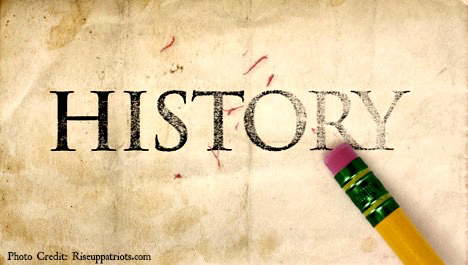I felt the rush of excitement as I watched the movie Walkout, a movie about the 1968 Chicano blowouts protesting the injustices of the public schools in East Los Angeles, for a research project. I couldn’t help but think, “I am these people.” However, that thought was quickly clouded with feelings of anger. Why did it take me eighteen years to finally begin learning about my people and their role in U.S. history? Why did I have to wait until college to finally take a class that taught me about my people’s legacy in this country?
Throughout my academic career, I have always read the history books given to me. I learned the history of this country, yet struggled to figure out the role that people like me play in American history. I did learn about events where my people were victimized, but I rarely learned about empowering movements led by my people. Truthfully, I felt a void inside because I couldn’t quite figure out who I was and the role that people from where I come from played in building this nation.
But, 18 years later, I finally found some answers. I came across terms like “Chicano” and became more aware of them. Not only that, upon researching the roles of the Latinx community in fighting educational disparities for a research paper in my class, I learned about how the Mexican-American community played an influential role in desegregating public schools. In the monumental case of Mendez v. Westminster, Mexican-American parents fought the state of California over school segregation and won. This is the first successful federal school desegregation case which eventually played an influential role in Brown v. The Board of Education of Topeka. The point of all this is that history books rarely mention Mendez v. Westminster, even if it’s role was influential to one of the most important cases in American history. It is exemplary of how the legacy of Mexican-Americans and people of color in general is erased from history. Legacies are lost simply because the history books we are given don’t mention our people’s empowering movements and the pivotal role they played in building this nation.
For youth who are often times having trouble feeling empowered by their identities, it is imperative for them to learn their people’s legacies. Are we cholos? Are we gang members? Are Latina women the only ones to hold maintenance jobs? Are we criminals? No, we are much more than what the media and popular culture tells us. We have a complex legacy in this nation, and it is about time youth learn about it. I am tired of reading about amazing white, old-men that helped build this nation and not reading about people of color and their role in building this nation. It is time to learn about those whose backs were stepped on by these white, old-men who are credited with building this nation.
The lack of Chicano and Latino history in the public schools is especially worrisome due to the long history of educational institutions enforcing assimilation into Anglo-American culture. Our books bombard our youth with the accomplishments of white men and make communities of color to only be victims. While I do believe events in which communities of color were victimized are important to learn, I believe that it is equally as important to learn about events in which communities of color, even if they were discriminated and marginalized, were empowered to fight against oppressors. This is especially important because our existence today is testimony that our people were not passive victims, their legacies involve empowerment and fighting against their oppressors–youth need to know that.
Yet, leave it to black history month, Cinco de Mayo, or special circumstances to immerse youth in topics that pertain to their people’s legacy in this country for month or just a few days. However, youth read Shakespeare year-round or consistently learn about white settlers and colonizers. For youth that don’t necessarily resonate with white, old-men, it is hard for them to understand the role that their people play in this country when history books downgrade their people’s legacies to a paragraph in a book. It is hard for youth of color to feel empowered when all they know is what they see from media outlets which many times pertains to criminalizing people who look like them and history books that tell them that their people have only been victims throughout history. It is time to immerse our youth in their history, one beyond the victimization. Youth need to learn about how their people’s legacy is ingrained in building this nation and how throughout history their people, even if they have had been marginalized, were able to feel empowered to mobilize and organize. In doing so, Chicano youth will understand their role in being part of continuing to build this nation and will understand that they are able to be empowered to fight oppressors, as their elders and ancestors have done.

